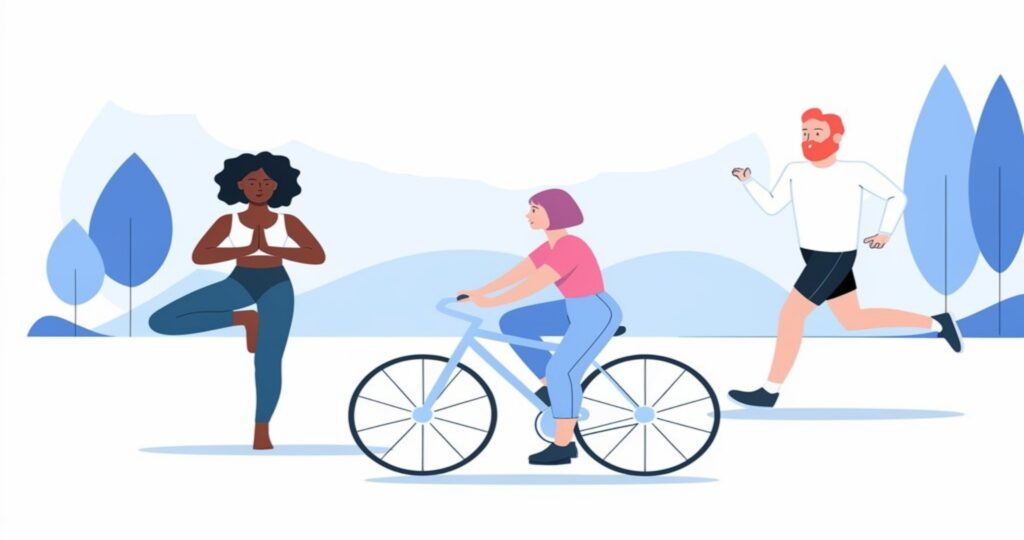
Sports are very important for people’s quality of life. Just as knowledge makes a difference in the world we live in
Have you ever heard that someone got better from depression after starting a sport? Or that their emotional state changed after starting to run, for example? So, here’s how sports practice affects people’s brains:
Improve your mood
Want a burst of happiness and relaxation? Get involved in physical activity. Whether you’re playing sports, working out at the gym or going for a brisk walk, sports trigger the release of brain chemicals that make you feel happier and more relaxed. Team sports, in particular, also offer the chance to engage in a satisfying challenge that improves your fitness. They also provide social benefits, allowing you to connect with teammates and friends in a fun environment.
Iimprove your concentration
Regular physical activity helps keep your core mental skills sharp and regulated, which tend to decline with age. These include critical thinking, learning and good judgment. I usually recommend a mix of aerobic and muscle-strengthening activities, as they are especially productive. Research has also shown that participating in sports three to five times a week for at least 30 minutes can provide these benefits for improving concentration and even memory.
Reduce stress and depression
When you are physically active, your mind is distracted from daily stressors. This can help you avoid being overwhelmed by negative thoughts. Exercise reduces the levels of stress hormones in your body. At the same time, it stimulates the production of endorphins. These increase the natural mood-boosting hormones that can keep stress and depression at bay. Endorphins also tend to make you feel more relaxed and optimistic after an intense workout. I believe that more quality research is needed to determine the relationship between sports and depression, but I usually recommend as a first prescription after a doctor’s consultation: playing sports is the best medicine for any sadness and tension!
Improve sleep habits
Sports and other forms of physical activity improve the quality of your sleep. They do this by helping you fall asleep faster and deepen your sleep (the phase of sleep where we repair tissue, heal and consolidate information). Getting better sleep can improve your mental outlook the next day, as well as your mood. Just be careful not to play sports too late in the day. Nighttime exercise a few hours before bed can leave some people feeling overly energetic and making it difficult to sleep. In this case, change the time of your exercise.
Help you maintain a healthy weight
Individual sports such as running, cycling, and strength training are particularly effective ways to burn calories and/or build muscle. Staying within a recommended weight range reduces the likelihood of developing diabetes, high cholesterol, and high blood pressure, among other diseases.
Sports boost your self-confidence
The regular exercise that comes with playing sports can boost your confidence and improve your self-esteem. As your strength, skill, and endurance increase through playing sports, your self-image also improves. With the renewed vigor and energy that comes from physical activity, you are more likely to succeed in daily tasks and at work because your self-control and positive reinforcement are enhanced.
Linked to Leadership Traits
Team sports such as football, baseball, and basketball are breeding grounds for leadership traits. Studies conducted in high schools show a correlation between sports participation and leadership qualities. Because of the opportunity to practice, compete, win, or lose together, people involved in sports are naturally more likely to adopt a “team mentality” in the workplace and in social situations. A team mentality leads to strong leadership qualities over time, especially proactivity.
Benefits for Children
Sports can benefit children in many ways that they benefit adults. The biggest difference is that when children start participating in sports at a young age, they are much more likely to remain active as they grow older. I believe that participating in a team sport improves academic performance and results in more participation in school, and in some cases even improves shyness.